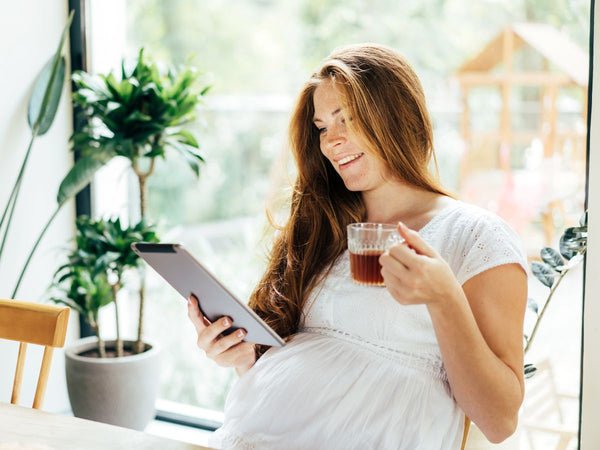Key Points:
- Recommended Limit: Pregnant women are advised to limit caffeine intake to 200mg per day, following Australian guidelines.
- Controversial Findings: Professor Jack James suggests no safe level of caffeine during pregnancy based on an analysis of 40 studies, associating caffeine with birth problems.
- Criticism of Findings: Critics argue flaws in the analysis, citing reliance on old studies, observational nature, lack of evidence proving causation, and potential faulty interpretation of data.
- Stick to Guidelines: Experts advise adhering to existing Australian guidelines, considering uncertainties and potential limitations in the research.
Pregnant women have long been told to reduce their caffeine intake throughout the duration of their pregnancies.
So, how much caffeine can I have per day?
The current Australian guidelines for consumption of caffeine during pregnancy is 200mg per day. We recommend sticking to this amount or less when possible.
What is the caffeine content of drinks and food?
Here is a list of how much caffeine is found in beverages:
| Espresso Coffee | 145 mg per 50 ml shot |
| Instant Coffee | 60-80 mg per 250ml cup |
| Tea | 10-50 mg per 250ml cup |
| Energy Drinks | Up to 80 mg/250 ml can |
| Coca Cola | Up to 54 mg/375 ml serving |

What is the latest research on caffeine consumption in pregnancy?
Jack James, a professor of the Psychology Department at Reykjavik University in Iceland, analysed the findings of 40 studies looking at caffeine consumption during pregnancy, concluding that there was no safe level of caffeine for a pregnant woman or one who is trying to conceive. His findings determined that there is a correlation between caffeine intake and birth problems or health concerns for the baby. These included miscarriage, stillbirth, low birth weight, childhood leukemia, and having a child that is overweight or obese with the risks increasing as caffeine intake increases.
Are these findings established?
Several experts not affiliated with the analysis have criticised James’ conclusion advising that pregnant and women trying to conceive stick to the current Australian guidelines.
Here are some of the reasons Beck and other experts say James’ conclusion is flawed.
There are no new findings.
The analysis performed by James looked at old studies and some of those studies informed on current recommendations to limit but not remove caffeine completely.
Most of the studies are observational.
Being that most of the studies analysed asked women to recall their caffeine consumption during their pregnancies often after quite a long time meaning that there is room for inaccuracies in the findings. Dr Alex Polyakov, a Senior Lecturer in the Department of Obstetrics and Gynaecology at the University of Melbourne, said there are ‘significant shortcomings’ involved in the analysis.
It does not prove caffeine causes problems.
The analysis did not consider other factors that may have contributed to birth problems or later health concerns experienced. University of Adelaide reproductive epidemiologist Professor Michael Davies said, ‘There is no clear evidence of harm at low levels of tea and coffee consumption, as there are no reliable data due to low observed risks,’.
The interpretation of the data may be faulty.
Australian epidemiologist Gideon Meyerowitz-Katz questioned the calculations in the analysis and said the risk estimates are incorrect likening the analysis to an opinion piece.
Whilst we do cover drinking caffeine during pregnancy in our Pregnancy Food Guide, if you have any concerns regarding your caffeine consumption during pregnancy, whilst trying to conceive or breastfeeding, Nourish recommends speaking to your healthcare provider.
About the Author: Jane Barry - Your Health Content Expert
Jane Barry is a registered nurse, midwife, and child health nurse with a passion for combining clinical expertise and writing. She has nearly 30 years of specialist experience in child health nursing and holds a Bachelor's Degree in Applied Science (Nursing). Jane specialises in women’s health, parenting, pregnancy, babies and maternity care, child health, nutrition, feeding, teething, and dental health issues.
An active member of AHPRA, The Australasian Medical Writer’s Association, Health Writer Hub, and the Australian College of Children and Young People’s Nurses, Jane Barry delivers health content with professionalism and clarity.
Our Products
-

01. Guide to a Healthy Pregnancy
$55 -

02. Positive Birthing Course
$55 -

03. Infant Feeding Guide
$55 -

04. Baby Sleep Guide - First 12 Months
$55 -

05. Toddler Parenting Course 1 - 3 Years
$55
-
 When to Start Antenatal Classes?
When to Start Antenatal Classes?
Becoming a parent is an incredible milestone, but it comes with a host of changes that can be daunting, especially for first time parents. Antenatal classes are all about offering expectant parents the education they need to make informed decisions, look after their bodies and care for their newborn babies. While you probably already have a long list of things you need to accomplish during your pregnancy, it’s a good idea to make time to attend antenatal classes.
-
 Development Milestones 4-8 Months
Development Milestones 4-8 Months
As they reach the middle of their first year, you'll start to see bigger leaps in their growth and ability!
In this article, we’re going to discuss your baby’s developmental milestones between 4-8 months, and what you can expect along the way.






 When to Start Antenatal Classes?
When to Start Antenatal Classes?
 Development Milestones 4-8 Months
Development Milestones 4-8 Months








